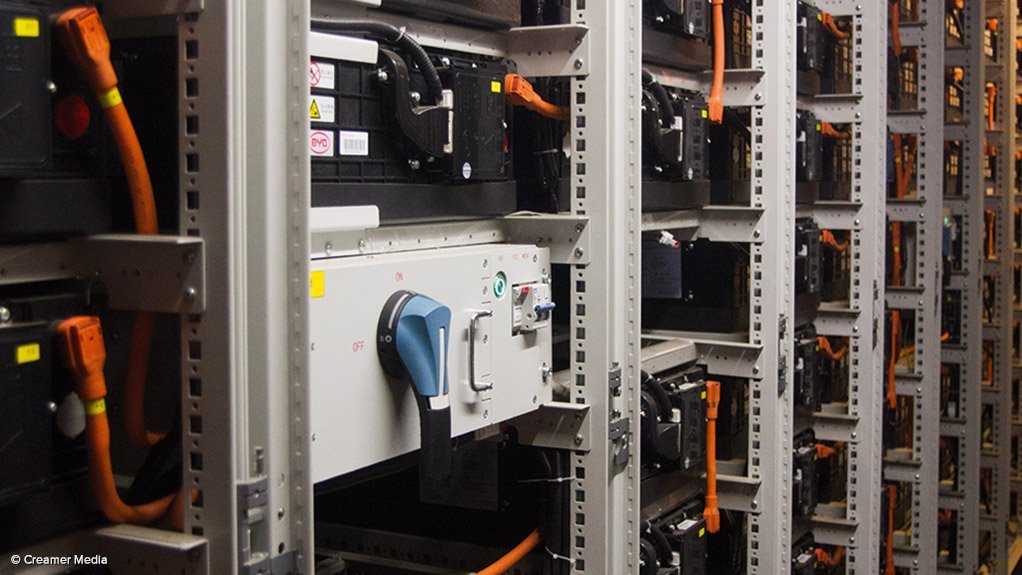Power utility Eskom and Hyosung Heavy Industries on December 7 marked the beginning of construction of the first energy storage facility under Eskom’s flagship Battery Energy Storage System (BESS) project.
Eskom in July confirmed the award of contracts with a combined value of R4.4-billion to Hyosung, of South Korea, and the Pinggao Group, of China, for BESS projects that will be delivered across several sites by the end of June 2023.
The sodturning ceremony for the first BESS was held at the Elandskop BESS site, located within Msunduzi and Impendle local municipalities in KwaZulu-Natal.
Construction will take between seven and twelve months and the batteries on the site will be charged from the main grid via Eskom’s Elandskop substation.
The facility will have a capacity of 8 MW, equivalent to 32 MWh of distributed electricity, enough to power a town such as Howick for four hours.
Among the notable benefits of the BESS is that it will boost the network during peak hours, thereby reducing the strain on the network during peak hours, Eskom explains.
“The beginning of the construction of the Elandskop BESS is a positive development in our efforts to alleviate the pressure on the national electricity grid.
“This is a direct response to the urgent need to address South Africa’s long-running electricity crisis by adding more generation capacity to the grid, and also to strengthen the grid by adding more storage and transforming capacity,” says Eskom CEO André de Ruyter.
Elandskop is part of Phase 1 of Eskom’s BESS project, which includes the installation of about 199 MW additional capacity, with 833 MWh of distributed battery storage plants at eight Eskom Distribution substation sites throughout the country. This phase also includes about 2 MW of solar photovoltaic (PV) capacity.
The cost of the project will be approximately R11-billion and is being funded through concessional loans from the World Bank, African Development Bank and the New Development Bank. The procurement process for this project has been set out by funders and Eskom is in compliance with it and internal governance.
Phase 2 of the BESS project includes the installation of a further 144 MW of storage capacity, equivalent to 616 MWh at four Eskom Distribution sites and one Transmission site. The solar PV capacity in this phase will be 58 MW.
The BESS project will use large-scale utility batteries with the capacity of 1 440 MWh/d and a 60 MW of PV capacity. It will be one of the largest BESS projects to be developed and implemented in South Africa.
“Eskom has identified distributed storage as an alternative to support renewable energy expansion in South Africa and we have taken the necessary steps to ensure the successful implementation of the BESS project,” says Eskom GM: distribution, operations enablement Velaphi Ntuli.
All Phase 1 sites are planned to be commissioned by June 30, 2023, and Phase 2 by December 2024.
EMAIL THIS ARTICLE SAVE THIS ARTICLE ARTICLE ENQUIRY
To subscribe email subscriptions@creamermedia.co.za or click here
To advertise email advertising@creamermedia.co.za or click here











